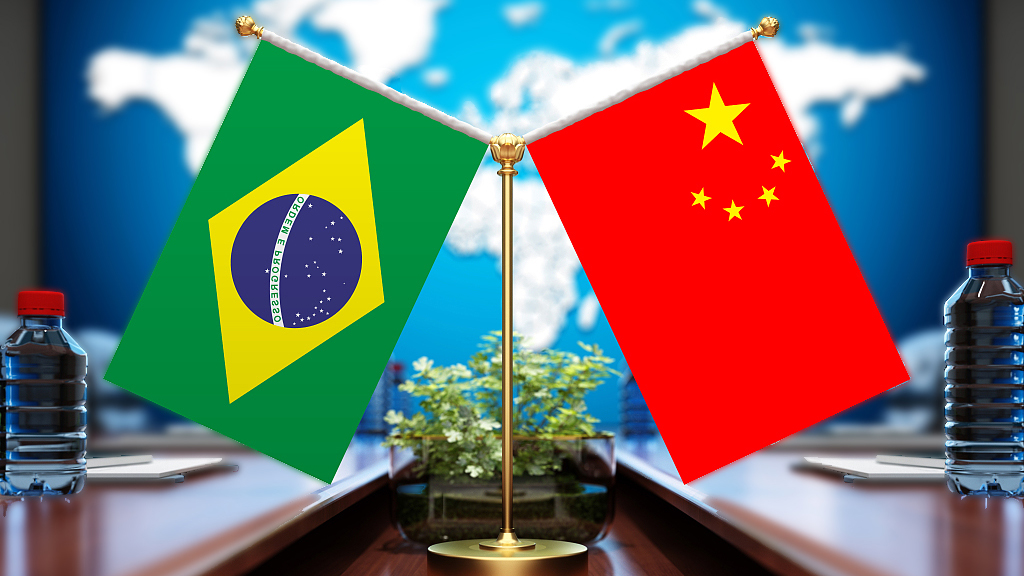
The national flags of China and Brazil. /CFP
The national flags of China and Brazil. /CFP
The Chinese currency renminbi (RMB), has surpassed the euro to become Brazil's second-largest international reserve currency, according to the latest International Reserve Management Report released by the country's central bank on Friday.
The report showed that the RMB accounted for 5.37 percent of Brazil's international exchange reserves by the end of 2022, surpassing the euro's 4.74 percent share, reflecting the deepening economic ties between Brazil and China.
The Chinese yuan became one of Brazil's international exchange reserve currencies in 2019. In the last two years, Brazil's RMB reserves have grown significantly.
In 2021, the share of the RMB in its foreign exchange reserves surged to 4.99 percent, up from 1.21 percent in the previous year. In the same year, the share of the U.S. dollar fell from 86.03 percent to 80.34 percent and the share of the euro fell from 7.85 percent to 5.04 percent.
The central bank also noted that Brazil's total international reserves declined from $362.2 billion in 2021 to $324.7 billion in 2022, due to a loss in portfolio returns amid the U.S. Federal Reserve's rate hikes and dollar appreciation.
The Chinese yuan accounted for 2.69 percent of the world's allocated reserves as of the last quarter of 2022, data released by the International Monetary Fund (IMF) showed on Friday.
The renminbi's share of world foreign exchange reserves ranks fifth among all reserve currencies, following the U.S. dollar, the euro, the Japanese yen and the British pound.